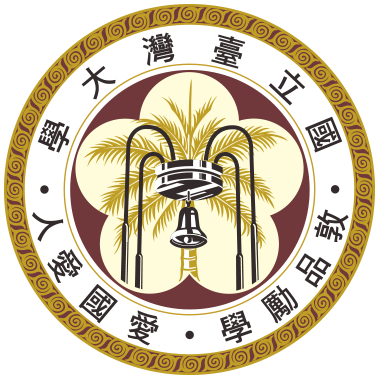In the past few years, globalization trends have shifted dramatically due to the pandemic, the Russian-Ukrainian War, and other factors. In order to continue promoting international collaboration and broaden global horizons, NTU OIA is honored to invite a seasoned scholar in this field- Professor Bruce Stronach, the former Dean of Temple University Japan, to share his personal experiences as a visiting scholar at NTU.

Teaching at NTU: A Course to Build New Perspectives on Globalization
Bruce returned to NTU in the fall of 2022, receiving an invitation from the previous Vice President for International Affairs of Temple University, Professor Hai-Lung Dai, to come teach as a visiting scholar. He opened a course at the Graduate Institute of National Development, in cooperation with Professor Yu-Ting Lee from Graduate Institute of National Development, called “Japan in the Age of Globalization.” The course analyzes Japanese history, society, politics, and economics in the context of modern globalization, encouraging students to look at several case studies with different perspectives.
When we asked Bruce why he would teach a course on this topic, he expressed how Japan is historically one of the most homogenous countries and now has a strong requirement to globalize. He hopes to call the students’ attention to Japan’s cultural background and how its process of globalization evolved in that context. Through this course, students develop broader minds and visions, thus cultivating more global citizens. The goal is also consistent with the feedback we’ve received from many students in Bruce’s class, who mentioned his teaching is “perspective-breaking.” The course opened their minds to new ways of seeing and analyzing the world at large.
One reason Bruce decided to come teach at NTU is that the historical development of Taiwan and Japan are inseparable. He likes to observe the cultural nuances between the two countries through the educational systems and social interactions. For example, he noticed how the foundational curriculum at NTU maintains many aspects from its founding under Japanese occupation. Additionally, the public transportation infrastructure is much like Japan, including the high-speed rail and MRT. People even politely line up to board the trains as they do in Japan. Bruce integrates these observations into his teaching, inspiring students to take more macro perspectives as well as notice the influence of globalization in daily life.

A Glimpse of Taiwan’s Culture through NTU
Towards the end of the interview, Bruce also brought up three elements of NTU that left him with the deepest impression.
First, the students are well-qualified and intelligent, and they have many positive interactions with each other during the course. Second, many of the school’s new policies align with his ideas for higher education reform. Third, the rich academic environment, beautiful scenery, and diverse facilities on NTU’s campus have made his experience here worthwhile and enjoyable.
From the Palm Boulevard where the students shuttle through on a daily basis, to the campus lakes and farm, to the architectural similarities to Japanese imperial universities, all these aspects about NTU have deeply infatuated him. He also enjoys biking around the campus and observing how students and people from the surrounding communities interact. Through this exercise, he has gained more insights on the similarities and disparities between Taiwanese and Japanese societies, which constantly inspires his teaching and research at NTU.
The Key to Cultivating Talents: Diverse Perspectives and Deep Learning
Through this interview with Prof. Bruce, we strongly sensed his passion and ambition for the fields of globalization and university reform. He’s mentioned while professional knowledge is important, without diverse critical thinking and problem-solving skills, along with the ability to look at the big picture, one’s education would be incomplete. In the highly competitive talent environment of Taiwan, in addition to professional courses, NTU also equips students with diverse learning methods, cultivating more globalized talents and increasing their global competence.

Source: https://oia.ntu.edu.tw/en/oiavision/oiacolumn/scholar_bs


